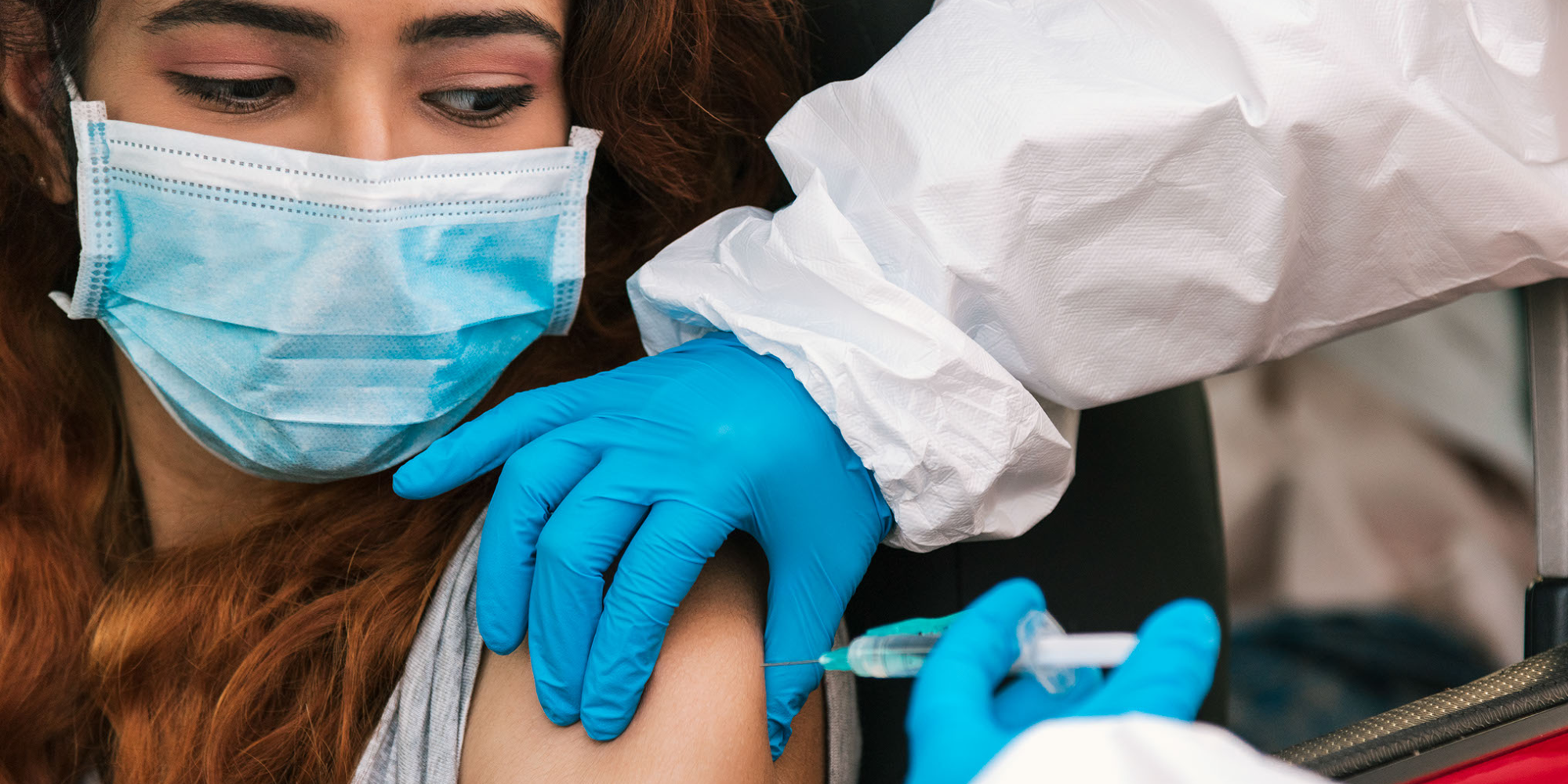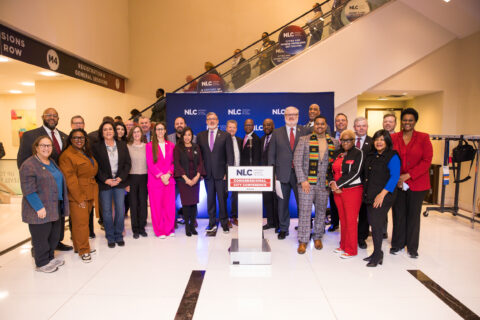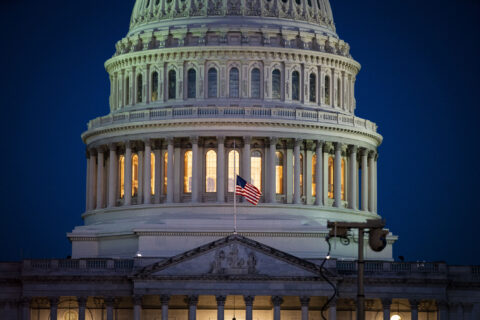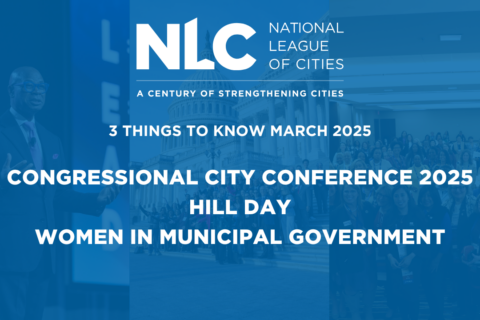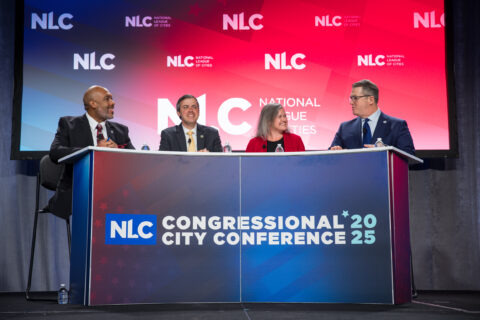Following the emergency authorization of COVID-19 vaccines last December, states and localities were left scrambling to rapidly mount vaccination campaigns with little federal guidance, support, and funding. President Biden’s National COVID-19 Strategy fills major gaps in the pandemic response and sets the country on a path to end the pandemic. The Center for American Progress (CAP) recently published a report that outlines new resources and assistance available to state and local governments.
The national plan includes four key elements to support states and local governments as they boost the equity and efficiency of their vaccination programs: 1) ensuring transparency about vaccine supply and projections; 2) providing support for equitable and efficient vaccine distribution and administration; 3) offering federal assistance to help make signing up for vaccine appointments more efficient and equitable; and 4) mounting a public information campaign that responds to state and local needs. State and local leaders can take advantage of these resources, as well as share best practices among themselves, to address the distribution and administration challenges they face. Local governments in particular can serve as a critical link between the state’s decisions and their communities through consistent and reliable communication.
Ensuring transparency about vaccine supply and projections. Under the previous administration, some states reported a 40 percent reduction in doses they anticipated receiving and distressed by the discovery that a federal stockpile did not exist, despite promises to release doses held in reserve. The Administration has begun following through on its promise to supply state and local governments with supply projections three weeks in advance. President Biden’s team also intends to partner with state and local officials to strengthen software systems in order to ensure systems meet state and local needs. State and local leaders can do the following to promote vaccine transparency:
- With advance notice on vaccine supply, state and local leaders and vaccination site staff can ensure lines of communication are in place for ensue transparency about supply and needs up and down the chain of government and throughout the provider network.
- States can work with local leaders to take advantage of the federal government’s offer of technical assistance to better integrate the data systems they use and streamline data processes.
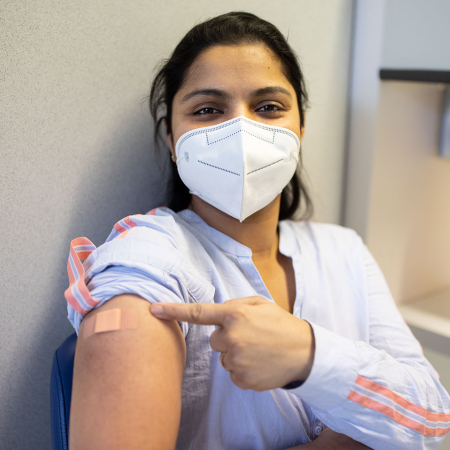
Providing support for equitable and efficient vaccine distribution and administration. The national vaccine strategy provides states and localities with resources to set up and staff federally run and federally supported vaccination clinics to improve vaccine access while avoiding straining hospitals that are already busy with surges of COVID-19 patients. In addition to offering staffing support from federal programs, the Biden administration plans to release guidance encouraging states to expand their health care workforce by extending scope of practice laws and offering temporary licensure for clinical students and foreign-trained providers. Furthermore, the Administration, as well as many states and counties, plans to deploy mobile vaccination clinics to rural and other hard-to-reach communities. State and local governments can do the following to improve equity and efficiency:
- Partner with the Administration to take advantage of federal support to establish community vaccination sites in vulnerable communities.
- Work with local universities, community colleges, professional associations, and other community centers to provide training for unlicensed vaccine administrators.
- Consider equity when determining the location of vaccination sites. Use the CDC social vulnerability index to determine which communities need greater allocations and access to vaccinations.
- Publicize mobile vaccine administration opportunities, considering equity, accessibility, and targeted communication efforts.
- Use existing or new relationships with rural providers and pharmacies and FQHCs to listen to community experts about community needs and use existing communities’ ties and trust to provide vaccines to hard-to-reach and high-risk populations.
Improve the sign-up process for vaccine appointments. The chaotic online process to secure vaccine appointments is particularly difficult for elderly people and those in low-income communities who lack broadband internet or cellphone access—particularly Black, tribal, and rural communities. People with faster internet speeds, tech savviness, or support from younger generations may have an advantage in securing scarce vaccine appointments. The Biden plan offers federal technical support for new data systems, including appointment scheduling. State and local leaders can create more equitable scheduling systems by:
- Rethinking registration systems with equity in mind. For example, Minnesota Governor Walz (D) converted the state’s sign up system to randomize vaccine appointments for seniors who sign up during a 24-hour window, rather than allocating appointments on a first come, first served basis.
- Encouraging residents who are scheduled to be vaccinated to pre-register online or by phone.
- Take the Biden administration up on its offer of technical support and utilize user experience and user interface experts to ensure online systems and forms are accessible.
Develop a federal public education campaign that responds to state and local needs. Facing widespread misinformation, the disproportionate media attention on rare side effects, and vaccine hesitancy—understandably higher among some Black Americans, given the history of the notoriously exploitative Tuskegee study and ongoing crisis of medical racism—it is essential for the leaders at all levels to move quickly to dispel disinformation and build public trust in the vaccine. The Biden administration plans to work closely with state, local, and community leaders and leverage the full resources of the federal government for a public education campaign. To ensure a public education initiative meets local needs, state and local governments can:
- Engage local leaders and community groups to ensure public education campaigns adequately address residents’ concerns, hesitancy, and confusion. For example, Michigan Governor Whitmer recently appointed new members to a state commission intended to engage leaders of groups dedicated to particular identities, industries, and professions in the development of a vaccine communication initiative.
- Work with community leaders to identify trusted messengers and ensure federal campaigns apply to local contexts.
- Take advantage of an upcoming CDC toolkit to support local ambassador programs that highlight the vaccine stories and experiences of trusted messengers.
A vaccine campaign on the scale required to end the COVID-19 pandemic requires all governmental and community hands on deck to distribute, administer, and promote vaccines efficiently and equitably. The Administration seeks to transform the fragmented launch of the vaccine program with a strategy that promises to quickly get vaccines in the arms of people who need them most. The Biden plan offers local leaders—who have been working tirelessly to support their communities during the pandemic—the resources they need to meet the many challenges they have been facing, as well as the opportunity to take full advantage of federal support.
